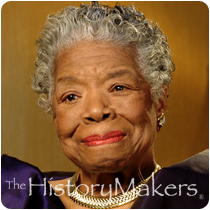 “I have the audacity to believe that peoples everywhere can have three meals a day for their bodies, education and culture for their minds, and dignity, equality, and freedom for their spirits.“
“I have the audacity to believe that peoples everywhere can have three meals a day for their bodies, education and culture for their minds, and dignity, equality, and freedom for their spirits.“
~Martin Luther King, Jr. | Nobel Peace Prize acceptance speech, Oslo, Norway, 1964
February honors Black history, and we are pleased to share with you multiple resources that spotlight not only the history of African Americans but also many current realities that affect many children, women, and men of color.
To our enduring, inspiring diversity!
The CPIR Team
_______________________
Black History, Spoken True
 The History Makers
The History Makers
This digital archive is an incredible collection of oral histories shared by over 3,300 African Americans known and unknown. Access interviews, biographies, videos, archival photography, and more, and learn personal perspectives and unique facts from influential African Americans who made history in their own right across a wide range of fields, from art, business, education, entertainment, law, music, science, and sports.
_______________________
Recent Research
Advancing Racial Equity in Early Intervention and Preschool Special Education
This 9-page fact sheet provides key information and supporting evidence about racial disparities and inequities for young children with a disability, and questions for state and local leaders seeking to advance equity for all children with disabilities and their families. From the ECTA Center.
Promoting Black Girls’ and Women’s Sexual and Reproductive Health Requires Acknowledging Their History and Experiences
This brief from Child Trends discusses how reproductive suppression has led to disproportionately adverse sexual and reproductive health outcomes for Black girls and women. The authors suggest using a holistic approach—one that focuses on intersectionality, gender equity, and culturally responsive practices—to promote the sexual and reproductive health of Black girls and women.
Confronting Color-Blindness
All of us have probably heard someone say that they “don’t see color” or that “it would be great if we could all just stop noticing race.” While these statements may be well-intentioned, colorblind ideology undermines diversity, inclusion, and equity. Here’s an online module that can help us understand the concepts of color-blindness, color evasion, and power evasion and how they may show up in our interactions with families, staff and colleagues.
When Trauma is Complex
What is Complex Trauma?
(Also available in Spanish: ¿Qué es trauma complejo?)
When people think of trauma, they often imagine a specific experience, like a natural disaster or a violent attack. But there’s another form of trauma that involves chronic negative experiences like abuse, neglect, or violence. This is known as complex trauma, and its profound impact on kids is often misunderstood. Take a close look at complex trauma—its causes, the symptoms associated with it, and how to help kids who are dealing with it. From the Child Mind Institute.
_______________________
 This eNewsletter from the CPIR is copyright-free.
This eNewsletter from the CPIR is copyright-free.
We encourage you to share it with others.
Center for Parent Information and Resources
c/o SPAN, Inc.
35 Halsey St., Fourth Floor
Newark, NJ 07102
https://www.parentcenterhub.org
Subscribe to the Buzz from the Hub.
See past issues of the Buzz.
____________________________________________________________
Publication of this eNewsletter is made possible through Cooperative Agreement H328R180005 between OSEP and the Statewide Parent Advocacy Network (SPAN). The contents do not necessarily reflect the views or policies of the Department of Education, nor does mention of trade names, commercial products, or organizations imply endorsement by the U.S. Government or by the Center for Parent Information and Resources.

